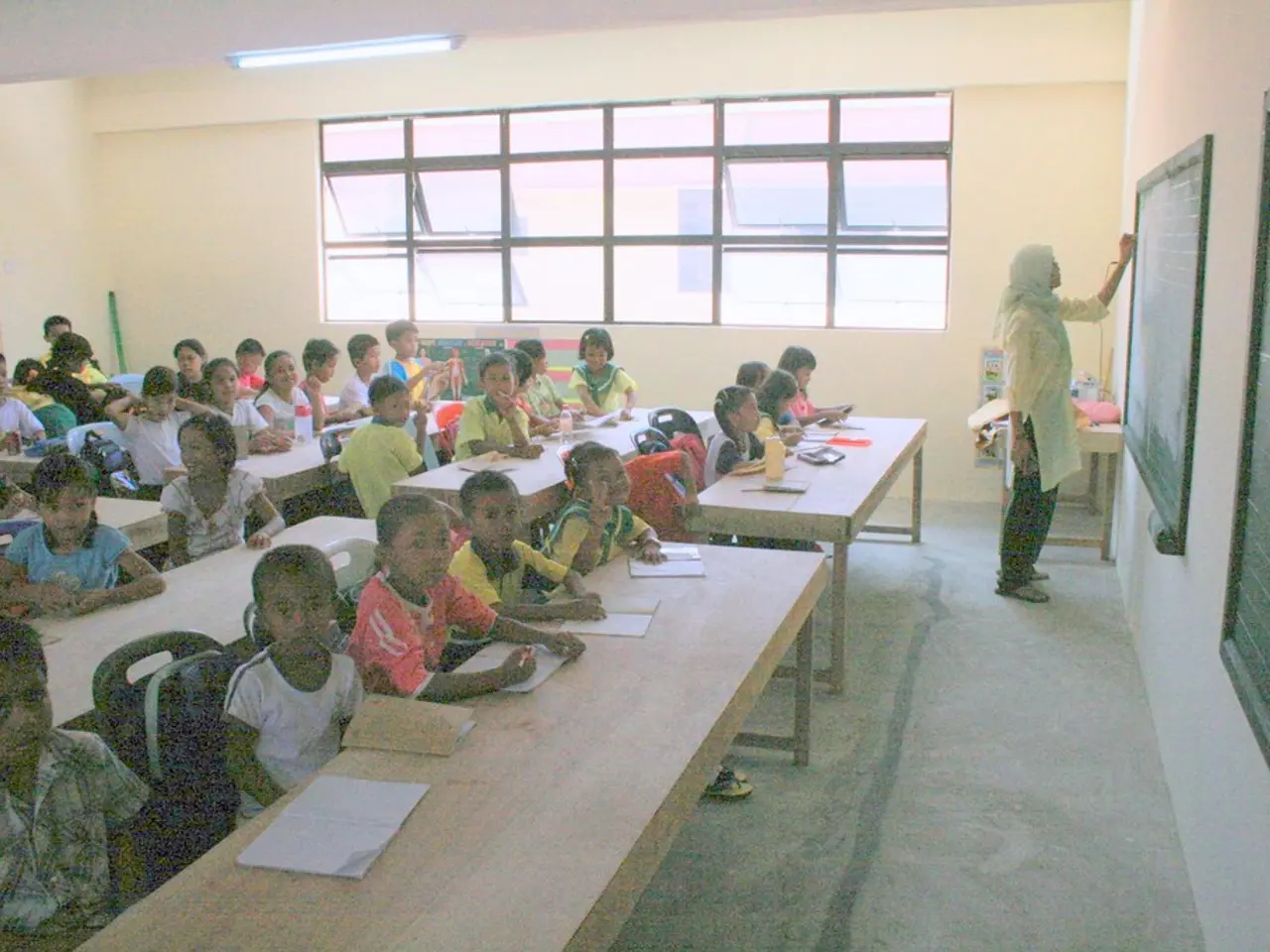Shaping Tomorrow's Learning: Examining Novel Education Trends and AI's Role in Transformation
In today's rapidly evolving world, education is undergoing significant changes, driven by advancements in technology and the evolving needs of learners. One of the most influential factors shaping the landscape of education is the integration of artificial intelligence (AI).
AI is expected to transform future learning environments into more dynamic, personalized, interactive, and supportive spaces. Education will become more accessible and inclusive, reaching diverse learners from various backgrounds and locations.
The integration of AI is profoundly impacting education by making learning more personalized, adaptive, and accessible. AI tools are becoming embedded in curriculum design, assessment, and administrative tasks, transforming one-size-fits-all education into personalized, adaptive learning experiences tailored to individual students’ strengths, weaknesses, and learning styles.
AI-powered adaptive systems will continuously analyze student data to tailor lessons in real time, providing additional resources and offering customized support whenever needed. Intelligent tutoring systems are expected to become common, helping students learn at their own pace effectively.
Immersive learning with augmented reality (AR) and virtual reality (VR) technologies adds interactive, concrete experiences to learning. These technologies make abstract concepts more tangible, enhancing engagement and understanding. For example, virtual dissections or space exploration simulations can significantly improve learning outcomes.
AI will also facilitate collaborative learning by connecting students virtually, enabling automated discussion forums and group study applications that overcome geographical barriers.
Alongside technological advances, education is prioritizing mental health, emotional literacy, and reforming traditional assessment methods to support holistic learning outcomes. The global education technology market is rapidly expanding, with AI-driven EdTech projected to reach substantial market size by the late 2020s, indicating strong investment and adoption momentum.
The future of education holds exciting possibilities, preparing learners for the challenges and opportunities of tomorrow by embracing emerging trends and harnessing the power of artificial intelligence. The role of educators in the future will be to guide and facilitate learning, leveraging AI as a powerful tool rather than a replacement for human interaction and expertise.
STEAM education, which integrates Science, Technology, Engineering, Arts, and Mathematics, is a rising interest in education, fostering critical thinking, problem-solving, and creativity. Lifelong learning is a significant trend in education, as individuals need to continuously update their skills and acquire new knowledge to stay relevant in the fast-paced world.
As we move forward, it is crucial for educators, policymakers, and stakeholders to adapt to these changes, embracing innovation while ensuring high-quality, learner-centered education. The boundaries between formal and informal learning will blur as learners utilize online resources, mobile learning apps, and social learning communities. Traditional classrooms will evolve into flexible spaces promoting collaboration, creativity, and critical thinking. Interactive displays, virtual reality labs, and AI-powered learning platforms will become commonplace in learning environments.
In conclusion, the integration of emerging technologies, such as AI, will continue to shape the landscape of education, preparing learners for a future where knowledge, skills, and adaptability are essential for success.
- The integration of artificial intelligence (AI) in education-and-self-development blogs discusses the future of learning environments becoming more dynamic, personalized, and adaptive.
- STEAM education, which integrates Science, Technology, Engineering, Arts, and Mathematics, is expected to benefit from AI, fostering creativity, critical thinking, and problem-solving.
- As AI-powered learning platforms become commonplace in learning environments, they will enable collaborative learning experiences that overcome geographical barriers.
- Lifelong learning, a significant trend in education, will be facilitated by technological innovations like AI and virtual reality (VR), allowing learners to continuously update their skills and acquire new knowledge.




